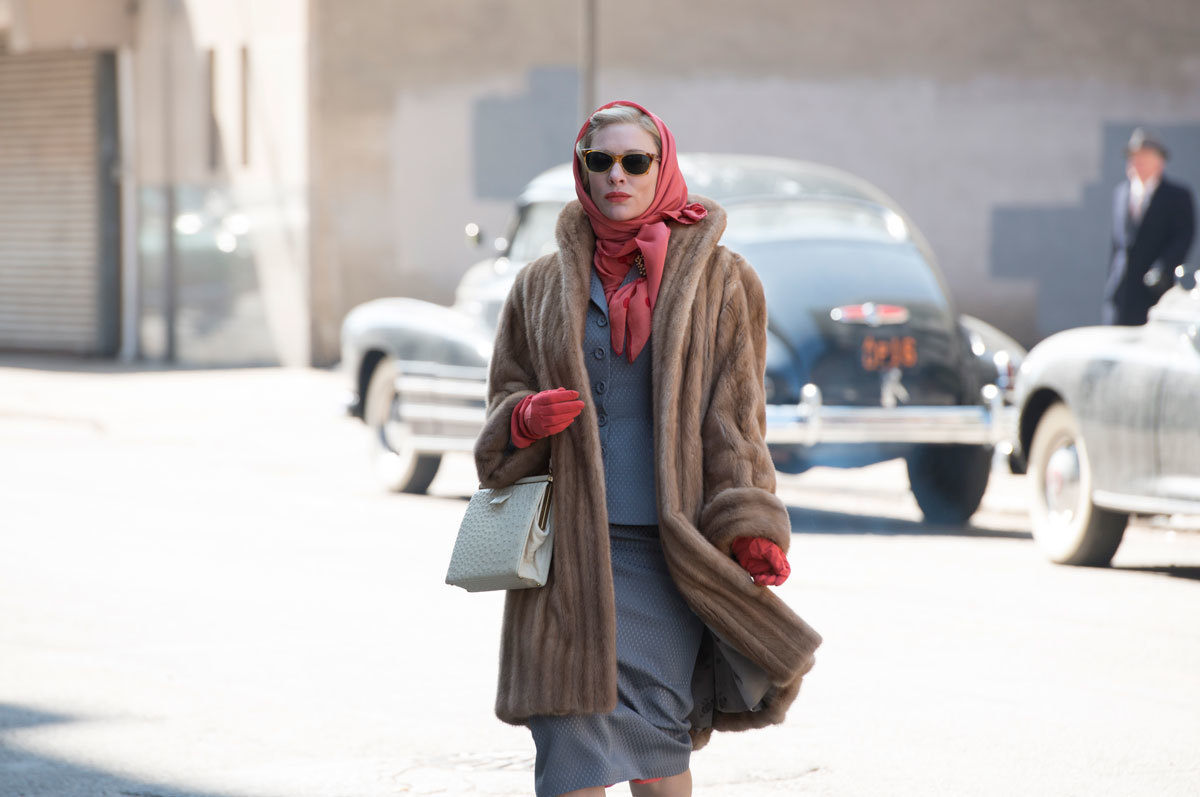Todd Haynes has seen a lot of his films recently. He’s caught snippets of the gorgeously old Hollywood homage Far from Heaven, his glam rock tribute Velvet Goldmine and his seminal New Queer Cinema moment Poison — the film that put Haynes on the map as an independent filmmaker. Haynes has seen the clips because there have been so many tributes to his films lately. This month alone, there’s been celebrations of his work in New York and Minneapolis; tonight in London, BAFTA hosts a career retrospective. It comes at a significant moment for Haynes, as this week sees the UK release of Carol, his forensic study of two women falling in love in 50s New York. Wesat down with Haynes’ to get his thoughts on his own filmography.
Superstar: The Karen Carpenter Story (1987)
Barbie is Karen Carpenter in Haynes’ (just about) feature length debut where the filmmaker used dolls to enact scenes from the last seven years of the troubled singer’s life. Withdrawn from circulation in 1990 after Haynes lost a copyright infringement lawsuit, the film has nevertheless established itself as a cult classic. Perhaps most memorably — and controversially — Haynes depicted Karen Carpenter’s anorexia by paring down the Barbie doll’s face and arms. “I probably had the most fun on Superstar of any film I’ve made,” he says. “Just because it was all handmade and I had my hands all over it than I’d ever had before. Purely from a creative standpoint, it was a great deal of fun.”
Poison (1991)
“Poison is a wild film,” says the director of his debut proper, a New Queer Cinema moment. “It’s a film that could not have been made today. I don’t know what people would make of it today.” He’s right, not least because Poison remains so undefinable. It’s part science fiction, part horror, part drama that intercuts three tall tales: about a boy who kills his father (a scientist meddling with human sexuality) and features cellmate lust inspired by a Jean Genet story, to create a resolutely queer experience. “I’m proud of it because it’s completely uncompromised in every way and maybe that alone is something that defines it as something nobody makes anymore,” Haynes adds. “But it was speaking very directly to a specific time and place historically, culturally and it was trying to provide a support and energy and to be a weapon to strike back at the status quo at that time.”
Safe (1995)
A housewife becomes allergic to her suburban existence in Haynes’ innovative response to the mid-80s AIDS crisis and the assumed threat to affluent, middle class white America: “Safe was my first film with Julianne Moore and she does something in that film that very few actors could ever do which is play a virtually unplayable person, a person who almost doesn’t exist on the page. She brings real life and real presence to it but without overplaying it. It was a partnership [with Moore] unlike any other I’ve experienced.”
Velvet Goldmine (1998)
Oscar Wilde is portrayed as the forbearer of glam rock in this raucous tribute to the 70s music’s queering of pop culture. “Velvet Goldmine is still the film that I have the most fun watching,” Haynes says. “I watched it recently at the OUTfest in LA in a beautiful print. I thought I’d just watch the beginning and I couldn’t [stop], I had such a good time watching it. They played it nice and loud. It’s a film that crams in so much queer history and style and references. It completely took everything out of me. I was really exhausted after making it but I was really happy with the results.”
Far From Heaven (2002)
Styled as a 1950s style Hollywood melodrama, Haynes’ contemporary spin gave voice to all the characters’ sexual, racial and class anxieties of the time. Julianne Moore is the housewife whose picture perfect life falls apart when she discovers her husband is gay and she finds herself falling for the black gardener. ‘Far From Heaven was a very disciplined film in terms of where it came from and how it was made,’ says its director. ‘I stayed true to the dictates of melodrama from Douglas Sirk at the time. And yet it’s a film that reached a wider audience than anything I’d done before so that felt very gratifying. I thought it was as experimental and risky as anything I’d made to date but it proved that those forms which are often degraded or rejected as not relevant anymore to a modern audience really hold up.’
I’m Not There (2005)
Six actors – including Cate Blanchett and Christian Bale – portray Bob Dylan at seven stages of his life. Says Haynes: “It was trying to retrace the mental and creative pathways of Bob Dylan’s life. It led me to so many sources, so much information about the 60s that was such a robust period for music and film and ideas. The film packs so much into it and features so much great music and amazing performances.”
Carol (2015)
Cate Blanchett and Rooney Mara play Carol and Therese, two women in 50s New York who fall for each other across a department store floor with life-changing consequences. Carol is an adaptation of crime writer Patricia Highsmith’s book The Price of Salt, which Haynes says he was drawn to in part for the analogy drawn by the author between criminals and would be lovers. “In Carol the falling in love is not that different from the furtive distortions of the criminal mind which is usually the subject of Patricia Highsmith’s novels,” he says. “I thought that was brilliant, the invisible line drawing the two together.”
Credits
Text Colin Crummy
